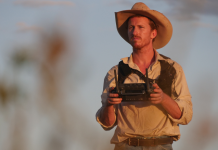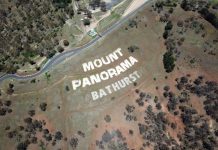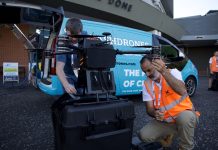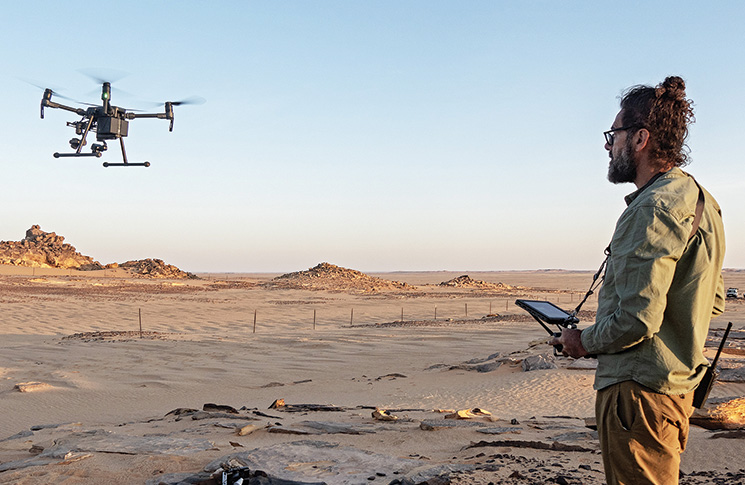
For John Fardoulis, it was discontent with his career in business and publishing that led him to his dream job as an international specialist using drones in hazardous environments for humanitarian purposes.
John’s motivation for a career path change stemmed from volunteering on archaeology projects on the island of Kythera in Greece, where his father was born.
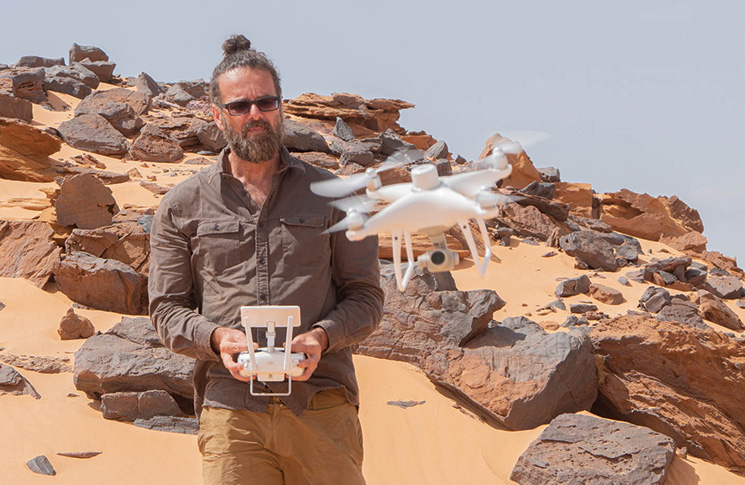
‘I later taught myself how to build drones from forums on the internet in 2011. I started off by buying electronics from hobby websites and structural elements such as wood and aluminium from Bunnings.
‘Now I am a multi-rotor specialist with over 700 operating hours and the machines I use range from 100 grams to 20 kilograms.”\’
John’s entry into using drones in humanitarian mine action (HMA) was via his work with the University of Bristol. He started out by doing mapping radiation at the edges of the fallout zone from the nuclear accident in Fukushima, Japan.
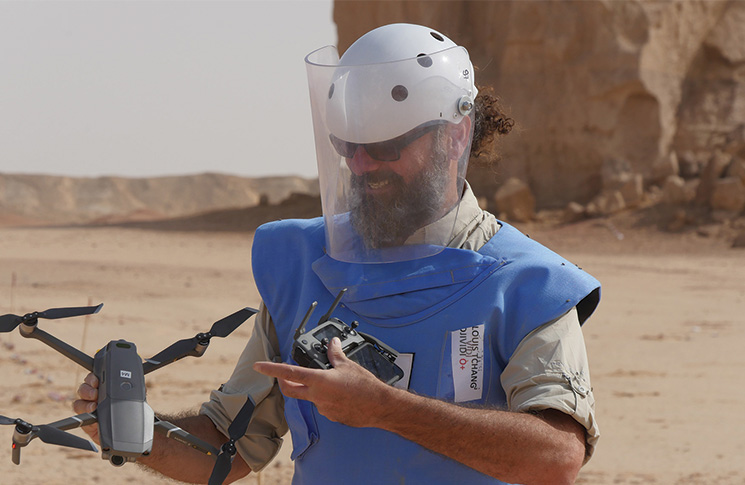
His most recent project was led by the Humanity & Inclusion/Handicap International NGO, working in the Republic of Chad, located in north-central Africa.
https://www.youtube.com/embed/q4PRvPYMFNo
Drones in the desert – Augmenting humanitarian mine action activities in Chad
‘One of my main tasks has been to develop methodologies to inspect and map minefields using drones,’ John says.
‘While I was embedded in remote HMA operations in the Sahara Desert, the conditions were really difficult. We had to camp out in the desert for weeks at a time and face so many natural hazards such as sandstorms and scorpions.
‘We were also operating in temperatures as high as 51° C — which was extraordinary — and we all faced water and food challenges before even factoring in threats from explosive hazards.
‘But I am really satisfied with the achievements we made over there, we really pioneered the use of drones in several ways for HMA purposes and developed two levels of diploma courses for national staff in Chad.’
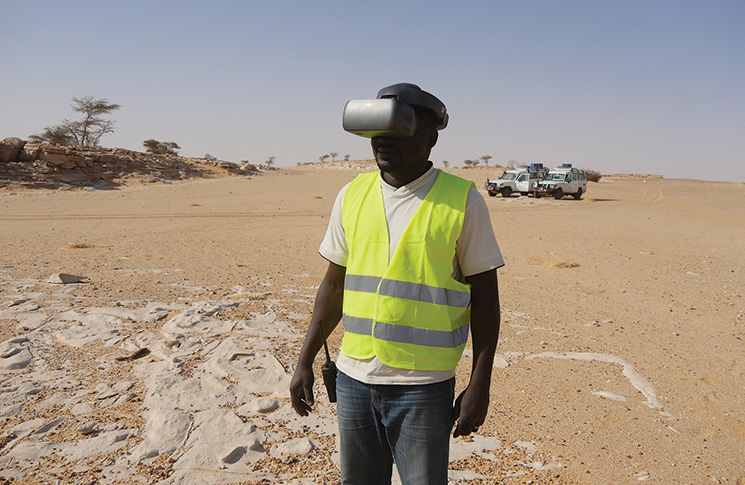
John has since moved back home to Australia and is using the COVID-19 pandemic lock down to mine through and fine tune his data.
He believes it’s important for all drone operators to be ‘ambassadors for the hobby’ and they should all fly according to the rules.
‘It’s a new area and important to educate the general public — you should take time to answer people’s questions and share your enthusiasm,’ he says.
‘You should also always be alert regarding how your drone is supposed to behave and anticipate any potential problems early.
‘And finally, understand the risks. When you understand the philosophy regarding why rules exist and you are then able to minimise risk.’

